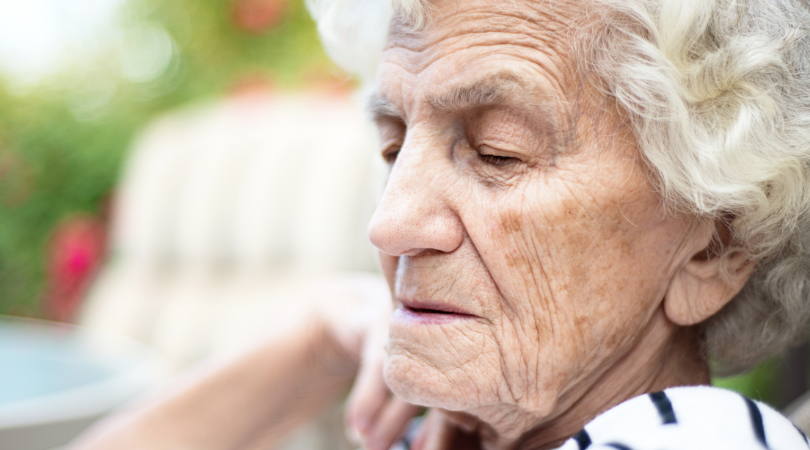The Intersection of Hospice and Mental Health

Mental health is as important as physical health, but many people don’t get the help they need to support good mental health. This can create many challenges in a person’s life and in their medical care. When a hospice patient is also diagnosed with mental health challenges, special care is taken to include mental health support into their plan of care.
What are the consequences of untreated mental illness for hospice patients?
When a person’s mental health is not properly supported, it can create a ripple effect of problems in their life. These can include:
- Family and relationship conflicts
- Social isolation
- Decreased enjoyment of life
- Misuse of tobacco, alcohol, and drugs
- Difficulty thriving in work or school
- Legal and financial challenges
- Self-harm or harm to others
- Physical health challenges including heart disease, high blood pressure, weakened immune system, asthma, obesity, and gastronomical issues.
All of these issues can complicate life and treatment for a hospice patient.

How does hospice manage mental health issues?
Hospice mental health care can be challenging.
In a best-case scenario, a hospice patient diagnosed with a mental health issue will already be receiving good treatment. If a mental health treatment is working for the patient, they can continue that treatment while receiving hospice care. For example, if they are taking antidepressants for mental health, hospice care plans will reflect that, and they can continue taking their medication.
Unfortunately, many patients are not in a best-case scenario for mental health. Unmanaged mental health creates added challenges to providing patients with the care they need. Many patients with unmanaged serious mental health conditions can’t commit to their goals of care. They will change their minds a lot and often revoke hospice care. While this is certainly their right, unmanaged symptoms and pain from their terminal illness makes the situation even more stressful for the patient.

Meeting People Where They Are
In healthcare, we need to meet people where they are. This means we need to respect the choices and circumstances of a patient’s life and work with them according to their physical/mental/emotional capabilities and limitations.
In hospice care, we work with patients in all shapes and sizes. Our patients have different cultural traditions, different socio-economic situations, different family dynamics, different communication styles, and a variety of physical, mental, emotional, and spiritual challenges. It is our job to support the patient through all of these circumstances, not in spite of them.
With hospice mental health, hospice care teams first must identify if the issue truly is a mental health issue or if it is a symptom of their physical illness or a medication side effect. Some mental health issues can benefit from meditation, guided imagery, or anti-anxiety medication. The hospice care team can assist with this.
For more serious mental health issues, the hospice care team will refer the patient to a geropsychologist who is specially trained to help older adults and their families address mental health challenges and improve quality of life.
Hospice care and mental health is not one size fits all. Every plan of care is tailored to the individual, and these plans of care are altered over time to best meet their needs.
To learn more about how Crossroads Hospice & Palliative Care supports patients with mental health needs and for answers to all your hospice questions, please call 1-888-564-3405.
If you found this information helpful, please share it with your network and community.
Copyright © 2021 Crossroads Hospice & Palliative Care. All rights reserved.




